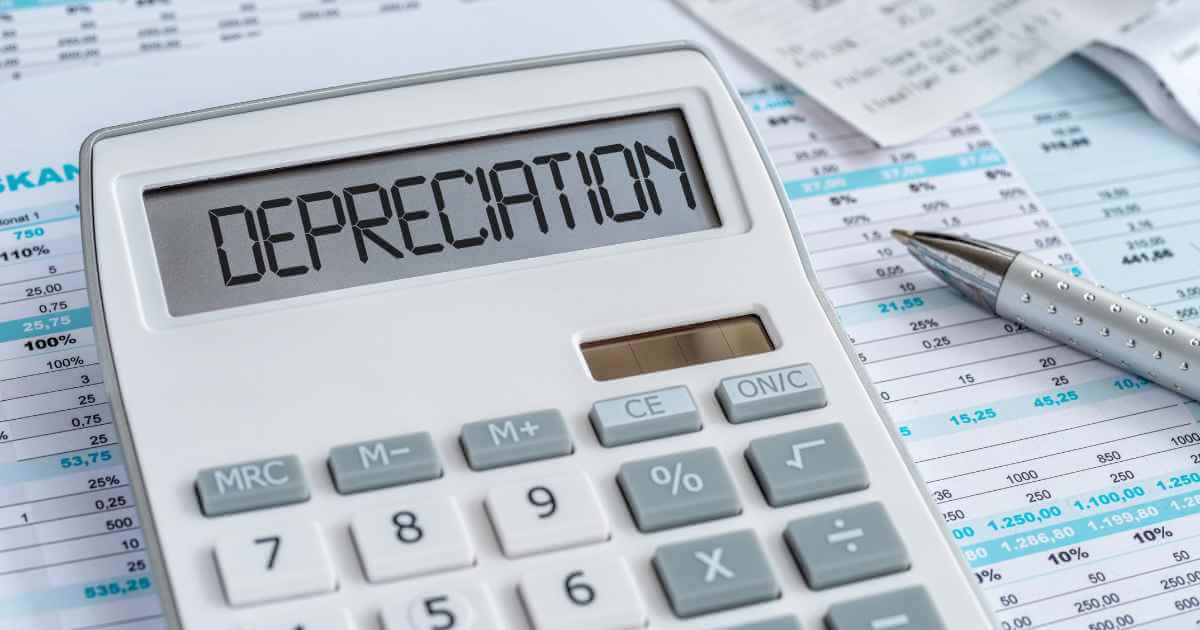Car Depreciation: Find How To Keep Your Car Value High

Car Depreciation: Your Guide to Understanding the Unexplainable
If you’ve ever felt the sting of trying to sell your car only to realize its value has plummeted since you bought it, then you’re already acquainted with the ghost in the machine: car depreciation. It’s the silent, unrelenting force that gnaws away at your car’s worth, often faster than your loan balance decreases.
But what if you could unveil this phantom, understand its ins and outs, and learn to minimize its impact?
In this comprehensive guide, we uncover the secrets behind car depreciation, demystifying this complex process and equipping you with knowledge and strategies to protect your investment. So buckle up, and get ready for an enlightening journey into the world of car depreciation.
This knowledge has the potential to save you thousands of dollars with a single car, and hundreds of thousands over your life…plus keep your investment on the road longer.
Car Depreciation Explained
– Table of Contents –
Car depreciation is one of the key areas you need to consider for following our best practices when buying a used car. So, let’s discover the secrets behind Car Depreciation and protect your investment with the following key areas:
- Introduction to Car Depreciation
- Factors Affecting Car Depreciation
- Factors to Consider When Buying A Car
- Strategies to Minimize Car Depreciation
- Protect Your Car From Car Depreciation
- Car Depreciation FAQs
Introduction to Car Depreciation

Picture this: You’ve just driven your car off the lot. You’re gleaming with pride as you navigate the streets, feeling the power of the engine, smelling the new car scent. But here’s a less glamorous truth: the moment your car’s wheels hit the road, it lost value.
Your car is now beginning its steady decline in value, and this process, known as car depreciation, is as relentless as the tick of a clock.
What is Car Depreciation?
Car depreciation, oh boy, where do we start? Picture this: you’ve just bought a brand new shiny car. You’re over the moon, right? Well, the moment you drive that new car off the lot, the clock starts ticking, and the value starts dropping. Yes, that’s vehicle depreciation rates – the inevitable villain in our car ownership saga.
Car depreciation is the reduction in your vehicle’s value over time due to factors such as age, mileage, wear and tear, and market trends.
Imagine your car is like an ice cream cone on a hot summer day. It’s delightful when you first get it, but as time passes (and the sun blazes), it inevitably melts. The melting ice cream is your car’s value, and the hot sun is depreciation.
You might be wondering, “Why is my car being singled out?” Unfortunately, it’s not. All cars depreciate, but the rate varies depending on various factors.
The Impact of Car Depreciation on Your Investment
Car depreciation significantly impacts the total cost of car ownership. It’s like a ghost haunting your automotive investment. You can’t see it, but its effects are undeniable.
When you buy a new car, it can lose up to 20% of its value the moment you drive it off the car dealer’s lot, and by the end of the first year, it can depreciate by 30%, with some being even more! This means if you bought a car for $30,000, by the end of the year, it could be worth only $24,000. Talk about a spooky revelation!
$6,000 thrown out the window in a year…and that’s not including all the monthly payments, gas, insurance, interest, registration…
Ouch.
Over the course of five years, it may lose up to 60% of its initial value. That means that the same car as above would be worth as little as $12,000 after five years!
That’s a hefty $18,000 lost to depreciation alone.
This phantom of depreciation doesn’t just affect your potential resale or trade-in value. It also increases your total cost of car ownership, making your vehicle less of a financial asset and more of a money pit, especially if you bought it new.
That’s what we call the financial implications of car depreciation.
Understanding car depreciation can help you make smarter financial decisions when it comes to buying and owning a car.
Do All Vehicles Lose the Same Value Because of Car Depreciation?
If you’re starting to worry, take a deep breath. Some cars hold their value better than others. For instance, luxury cars, due to their build quality and brand reputation, tend to depreciate slower than average. Certain brands known for their reliability and durability also have lower depreciation rates.
If you’re now thinking, “Okay, I’ll just buy a car that depreciates slower!” Well, you’re on to something, but there’s a tradeoff.
A slower depreciation rate doesn’t always mean a better deal.
While some car models and makes retain value better than others, it’s more important to look at the overall ownership cost while you have it. Car depreciation is just one aspect of it.
You must also consider, fuel costs, maintenance, repair costs, price tag, insurance, etc.
Factors Affecting Car Depreciation

Car depreciation isn’t some random act of the universe; it’s the result of several interplaying factors. To master the game of depreciation, you must understand the rules.
Here, we’ll examine some of the critical aspects that contribute to the depreciation of a car’s value.
Mileage and Usage
The adage “the more you use something, the faster it wears out” holds true for cars. Mileage is one of the most significant factors affecting car depreciation.
It’s simple: the more miles a car has traveled, the more wear and tear it has undergone, which usually results in a lower resale value.
How you use your car also plays a role in determining a car’s value. For instance, a car used predominantly for city driving may depreciate faster than one used mostly on highways, due to the stop-and-go nature of city driving which can cause more stress on the vehicle.
Frequent long-distance trips or using your car for commercial purposes can also accelerate depreciation.
The relationship between mileage and car depreciation is like a suspense thriller. As the mileage goes up, the value goes down.
Not exactly a plot twist, is it?
Age and Model Style
The age of a car also plays a starring role in the depreciation drama.
As a rule, the older the car, the less it’s worth. However, older cars depreciate at a slower pace.
The rate of depreciation is most noticeable in the first few years of a car’s life, which is why new cars lose value so rapidly.
The model style, meaning any kind of body change, of a vehicle can also significantly affect its depreciation. When a new model style is released, it often results in older models losing value faster, especially if the new model has significant upgrades or improvements.
Condition and Maintenance
The condition of a vehicle is a clear and visible factor that affects depreciation. A car that’s well-maintained and free from significant damages will undoubtedly hold its value better than a neglected one.
A well-maintained car can defy the depreciation odds.
Regular maintenance, such as timely oil changes, tire rotations, and keeping the interiors clean and pristine, can slow down the depreciation process and help preserve your car’s value.
Think of it as pampering your vehicle to age gracefully!
Market Demand and Trends
Now, this is where it gets interesting. In the grand arena of the automotive market, demand and trends can greatly influence patterns. Market factors not only influence interest rates but can influence car depreciation too.
If there’s a high demand for your car model in the used car market, you may see a slower depreciation rate. For example, electric vehicles have gained immense popularity recently, which has resulted in them holding their value better compared to traditional combustion engine cars.
Moreover, market trends in the automotive industry, such as shifts towards autonomous driving or the advent of new technology, can impact the resale value of older vehicles.
It’s a dance of supply and demand, trend and counter-trend, and your car’s value hangs in the balance.
By understanding these factors, you can make informed decisions when purchasing a car and take the necessary steps to slow down its depreciation.
Factors to Consider When Buying a Car

Choosing the right car is a big decision, with long-term financial implications. It’s not just about the make, model, or color. It’s also about the resale value of cars, financing options, warranties, and maintenance.
Here’s how to navigate these waters when looking for your perfect vehicle.
Resale Value and Depreciation Forecast
When buying a car, whether new or used, it’s essential to consider its potential resale value.
Some models depreciate faster than others due to factors like brand reputation, reliability, and market demand. Therefore, do your homework: research and compare the depreciation rates of different models.
Websites like Edmunds or Kelley Blue Book provide tools that can help you forecast depreciation and determine the expected resale value of a car.
Evaluating a car’s potential resale value and researching the car value depreciation rates of different models can save you from a depreciation heartbreak. Remember, information is power. Or in this case, information can save you thousands of dollars.
Financing and Depreciation
Financing plays a crucial role in the overall cost of your vehicle. If you finance your vehicle with a loan, understand that the interest you pay adds to the total cost of the car.
Moreover, if your car depreciates faster than you’re paying off the loan, you could end up owing more than what the car is worth, a situation known as being “upside down” or “underwater” on your loan.
If you’re financing your car, be mindful of how auto loans and interest rates can affect depreciation.
To minimize this risk, consider making a larger down payment or choosing a loan with a shorter term. This can help you build equity in the car faster and reduce the gap between what you owe and what your car is worth.
Warranty and Depreciation Protection
Warranties are like a safety net against unforeseen repair costs, which can also help to slow down depreciation. A car with an active warranty is likely to have a higher resale value than one without.
Furthermore, extended warranties can provide depreciation protection by covering more repair costs for a longer period. While these can add to the initial cost of the car, they may save you money in the long run by preserving your car’s value and keeping it in optimal condition.
If there is a way for you to get a free warranty from the car dealer you are purchasing from, we urge you to do so.
Maintenance and Car Value
Regular maintenance is key to preserving a car’s value and extending its lifespan. A well-maintained car not only fetches a higher resale value but also saves you from costly repairs.
It’s not enough to just perform routine maintenance on your car, you also need to keep records.
It’s like keeping a report card for your car. Trust me, future buyers will appreciate it.
When buying a car, plan for its maintenance. Follow the manufacturer’s recommended service schedule, and keep records of all maintenance activities. A documented maintenance history can provide a potential buyer with assurance that the vehicle has been well cared for, enhancing its value.
In the end, understanding these factors can help you select a car that not only meets your needs but also safeguards your investment.
Types of Cars with Lower Depreciation Rates
Depreciation rates vary significantly between different car brands and models. Luxury cars like BMW, Mercedes, and Audi tend to have higher depreciation rates, sometimes losing up to 80-90% of their value within the first five years.
On the other hand, brands like Toyota, Honda, and Subaru typically have lower depreciation rates. For example, models like the Toyota Tacoma, Subaru Outback, and Honda Accord or Civic often retain over 60% of their value after five years.
These brands are known for their reliability and durability, which is why their cars depreciate at a slower rate.
Strategies to Minimize Car Depreciation

Here’s the good news: car depreciation isn’t entirely out of your control. Think of it as a video game. You can’t stop the challenges from coming, but you can certainly get better at the game.
There are several strategies to minimize car depreciation:
- Mileage: Keeping your mileage low is one of the best ways to slow down depreciation. Cars with high mileage tend to depreciate faster than those with lower mileage.
- Condition: Keeping your car in good condition is key. Regular cleaning and detailing can preserve the aesthetic appeal of your car, while preventing minor issues from turning into major, costly problems that can help maintain its mechanical condition.
- Maintenance History: Regular maintenance and timely repairs can go a long way in preserving a car’s value. Most of all, keeping a record of all maintenance activities can reassure potential buyers that the car has been well taken care of, which can drastically boost its resale value.
- Other Tips: Buying a used car can help you avoid the steep depreciation curve that new cars experience. Opting for popular colors and features can make your car more appealing to future buyers. Moreover, holding onto your car for a longer period can allow depreciation to level off, reducing the financial impact when you decide to sell.
Remember, while you can’t avoid depreciation completely, you can certainly make decisions that slow down the process, preserving your car’s value and protecting your investment. It’s all about playing smart and keeping your car looking and running like new for as long as possible.
Protect Your Car From Car Depreciation

Depreciation is an unavoidable aspect of car ownership, but understanding how it works can help you make smarter investment decisions.
Knowing how to buy a used car from a dealer properly can help you save hundreds of thousands of dollars over your life. And it all starts with considering the depreciation on the type of vehicle you need.
The value of a car is influenced by factors such as mileage, age, condition, and market demand. By keeping your vehicle in good condition, maintaining a low mileage, and choosing a model that’s known for its value retention, you can slow down the rate of depreciation.
In the end, understanding car depreciation is all about knowing what to expect and how to protect your investment. After all, forewarned is forearmed, right?
Q: How quickly do cars depreciate?
On average, a new car can depreciate as much as 20% in the first year of ownership and around 10% each subsequent year. However, this can vary greatly based on the make, model, and condition of the car.
Q: Can you prevent car depreciation?
While you can’t prevent car depreciation completely, you can certainly slow it down. Strategies such as keeping the car’s mileage low, maintaining it regularly, preserving its physical condition, and choosing popular models and features can help preserve its value.
Q: Are certain car brands less prone to depreciation?
Yes. Some brands are known for their durability and reliability, which can help their vehicles retain value over time. Brands such as Toyota, Honda, and Subaru often have lower depreciation rates compared to luxury brands like BMW and Mercedes.
Q: Is leasing a car a good way to avoid depreciation?
Leasing can be a way to avoid the effects of depreciation as the lease payments typically cover the vehicle’s depreciation for the lease term. However, it’s worth noting that leasing is drastically more expensive in the long run, and you won’t own the car at the end of the lease. Leasing is simply convenience and comfort, which you are paying a premium for.
Q: How can I calculate the depreciation of my car?
Depreciation can be calculated using the straight-line method, where you subtract the car’s salvage value from its initial cost and divide by the number of years you plan to own it. You can also use online tools and calculators to estimate car depreciation, considering factors like make, model, age, and mileage. Make sure to read our article on how to calculate car depreciation for more info on this.

Armed with a better understanding of car depreciation, you’re now ready to make informed decisions about your current or future vehicle.
Whether you’re planning to buy, sell, or maintain a car, use this knowledge to protect your investment and get the best possible value. Remember, the more you understand about depreciation, the better equipped you’ll be to manage it.
Drive smart, and your wallet will thank you!
– Shameless Plug –
Contact Us Today to Get Approved For Your Pre Owned Vehicle
If you’re in the market for a used car, truck, SUV, or van, and you’re worried about your credit score, we are here to help.
Our buy here pay here auto sales will help you get the pre-owned vehicle you need. We keep our buy here pay here requirements easy to fulfill to give you a 97% chance of getting approved! With timely payments, it can improve your credit as well.
Thousands of other happy customers of the Fresno area just like you have already been approved and are on their path to a better future. If you’re concerned about getting denied because you don’t have a driver’s license or have no credit, we can help! With low down payments starting at only $500, great premiums for your trade-in, and a free warranty, you’ll be set up to succeed from the start.
Contact us today! Learn all about our selection of pre-owned vehicles and the best bad credit car financing options available for you.
Extra Resources To Help On Your Journey
We love to share the wealth! Here are some resources and trusted vendors that we personally use. They can help you take care of your vehicle as well as keep your credit and finances in tip-top shape:
Car Parts
High Quality and Affordable Car Parts: Advance Auto Parts
High Quality Dash Cams and Car Accessories: Rexing USA or VanTrue or Nextbase
Car Audio & Sound Systems: Eonon
Premium Wiper Blades & Accessories: Clix Auto
Easy Key Replacement & Programming DIY: Car Keys Express
High-Quality Orignal and Custom Car Lighting: LASFIT
Quality Car Parts/Accessories (mats, covers, assemblies): Oedro
Premium Car Detailing Supplies: Chemical Guys
High-Performance Car Parts & Air Filters: KN Filters
High-Performance Parts: Max Speeding Rods
Speed and Performance Parts: Spectre Performance
Air Intakes: Airaid
Original & Aftermarket Wheels: OE Wheels LLC
Battery Tenders: Deltran Battery
High-Quality Tires Of All Types: Priority Tire or Discount Tire
DIY Car Extras
In the event your dealer doesn’t provide you a history report: VinAudit
To learn to recondition your old car battery: EZ Battery Reconditioning
For DIY Ford vehicle repair: Ford Shop
To learn to take some knicks out of your car’s paint: High Quality Car Spray
If you find yourself in need of a car rental: Discover Cars or Airport Rental Cars or Holiday Autos
If you’d like to see what public car auctions are like: Gov Auctions or Gov Seized Auction
Personal Finance & Credit
To help you improve your credit: Axion Credit Repair or Coast Tradelines
For a DIY credit repair course: DIY Credit Repair
To help you get free of debt and increase your credit: What Lies In Your Debt?
If you’re in a bind and need cash quickly: Bad Credit Loans or Cash Advance
For personal loans of higher quantities: Fortuna Credit or Personal Loans
For a high cash-back credit card (make sure you only use it as if it’s a debit card!): Laurelroad
We will keep sharing all our vendors that we have a great experience with. Only the ones we see align with our values as time goes on, both locally and nationwide.
Disclaimer: The information provided in this article is for educational purposes only. It is not financial advice. Always consult with a qualified financial professional for personalized guidance.
